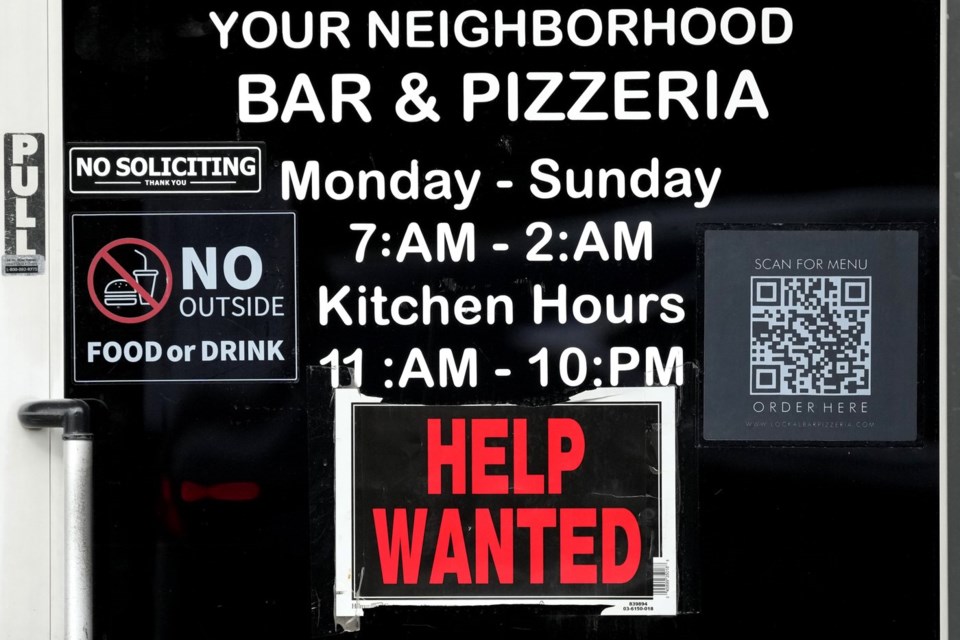WASHINGTON (AP) ÔÇö The number of Americans applying for unemployment checks dropped last week to the lowest level since March, suggesting that suggest most U.S. workers continue to enjoy .
Jobless claims dropped by 9,000 to 211,000 last week, the Labor Department reported Thursday. The four-week average of claims, which strips out week-to-week ups and downs, fell by 3,500 to 223,250.
The overall numbers receiving unemployment benefits fell by 52,000 to 1.84 million, the lowest since September.
Thomas Simons and Sam Saliba, economists at Jefferies, called the drops "encouraging'' in a commentary but cautioned that seasonal adjustments around the holidays can .
The U.S. job market has cooled considerably from the red-hot hiring days of 2021-2023 when the economy was bounding back from COVID-19 lockdowns.
Through November, employers added an average of 180,000 jobs a month in 2024, down from 251,000 in 2023, 377,000 in 2022 and a record 604,000 in 2021. Still, even the diminished job creation is solid and a sign of resilience in the face of high interest rates.
When the Labor Department releases hiring numbers for December on Jan. 10, they're expected to show that employers added 160,000 jobs last month.
The weekly jobless claims numbers are a proxy for layoffs, and those have remained below pre-pandemic levels. The unemployment rate is at a modest 4.2%, though that is up from a half century low 3.4% reached in 2023.
To fight inflation that hit four-decade highs two and a half years ago, the Federal Reserve raised its benchmark interest rates 11 times in 2022 and 2023. Inflation came down ÔÇö from 9.1% in mid-2022 to 2.7% in November, allowing the Fed to start cutting rates. But progress on inflation has stalled in recent months, and year-over-year consumer price increases are stuck above the Fed's 2% target.
At its December meeting, the Fed went ahead and cut its benchmark interest rate for the third time in 2024. But the central bankÔÇÖs policymakers signaled that theyÔÇÖre likely to be more cautious about future rate cuts: They projected just two in 2025, down from the four they had envisioned in September.
Paul Wiseman, The Associated Press


